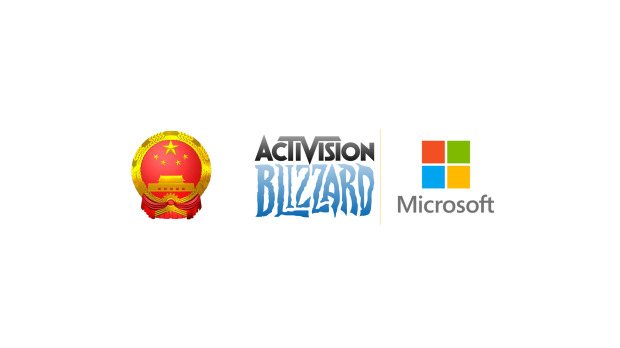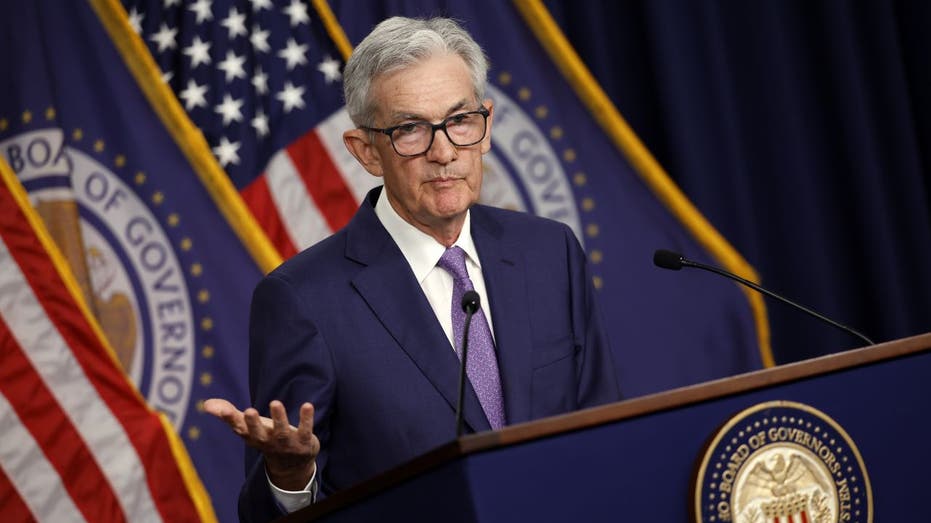FTC's Appeal Of Microsoft-Activision Merger: A Deep Dive

Table of Contents
The FTC's Core Arguments Against the Merger
The FTC's core argument rests on preventing anti-competitive practices and maintaining a competitive gaming market. Their concerns center around the potential for Microsoft to leverage its control over Activision Blizzard's vast portfolio, particularly Call of Duty, to stifle competition.
-
Anti-competitive practices: The FTC argues the merger would give Microsoft undue market power, allowing them to manipulate pricing, limit innovation, and ultimately harm consumers. This power stems from consolidating substantial market share in gaming consoles, PC gaming, and the burgeoning cloud gaming sector.
-
Market Dominance and Call of Duty Exclusivity: A significant point of contention is the potential for Call of Duty exclusivity on Xbox. The FTC argues that removing Call of Duty from PlayStation and other platforms would severely damage competitors, giving Microsoft an unfair advantage and potentially creating a monopoly. This impacts not just console sales but also the broader gaming ecosystem.
-
Impact on Cloud Gaming: The FTC's analysis extends to cloud gaming, a rapidly growing sector. They argue that Microsoft’s control of Activision Blizzard's content could restrict access for rival cloud gaming platforms, limiting consumer choice and innovation.
-
Evidence of Market Concentration: The FTC's case relies on presenting evidence demonstrating significant market concentration following the merger, highlighting barriers to entry for new competitors and potentially stifling innovation. This evidence is crucial to their claim of anti-competitive behavior.
Microsoft's Defense and Proposed Remedies
Microsoft vehemently defends the merger, arguing it will benefit consumers and foster innovation. Their defense relies on several key points:
-
Consumer Benefits: Microsoft emphasizes increased game availability and improved gaming experiences through the merger. They argue that combining resources will lead to more diverse game development and potentially lower prices for consumers in the long run.
-
The Ten-Year Call of Duty Deal: A central component of Microsoft's defense is its proposed ten-year agreement to keep Call of Duty on PlayStation. This commitment aims to alleviate concerns about exclusivity and maintain competition.
-
Maintaining a Competitive Cloud Gaming Market: Microsoft emphasizes its continued commitment to a fair and open cloud gaming market, despite controlling Activision Blizzard's extensive content library. They assert that their actions will not unduly restrict access for competitors.
-
Dynamic Gaming Industry: Microsoft argues the gaming industry is dynamic and competitive, and the merged entity would still only hold a modest market share, insufficient to create a monopoly. This counters the FTC's claims of market dominance.
-
Counter-Evidence: Microsoft presents counter-evidence challenging the FTC’s analysis of market concentration and barriers to entry, arguing the FTC’s projections are overly pessimistic.
The Role of International Regulatory Bodies
The Microsoft-Activision merger's fate isn't solely determined by the FTC. International regulatory bodies, including the EU and the UK's Competition and Markets Authority (CMA), play a significant role:
-
Differing Approaches: Regulatory bodies across the globe have shown varying approaches to the merger. The EU, for example, has approved the merger, highlighting the complex and often jurisdiction-specific nature of antitrust law.
-
The UK CMA's Decision: The UK CMA's initial decision against the merger was a significant blow to Microsoft, though subsequent developments have changed the landscape. The CMA's concerns often mirror those of the FTC, focusing on market dominance and the potential harm to competition.
-
International Implications: The divergence in regulatory opinions highlights the challenges in creating a consistent global approach to mergers and acquisitions in the tech sector, particularly in a rapidly evolving industry like gaming.
-
Comparison of Regulatory Frameworks: A comparative analysis of different regulatory frameworks shows the complexities involved, illustrating how the same merger can be viewed differently based on local market structures and legal interpretations.
Potential Outcomes and Implications for the Gaming Industry
The FTC's appeal could have several outcomes: an FTC victory blocking the merger, a Microsoft victory affirming the merger, or a negotiated settlement.
-
Scenario Analysis: Each outcome will drastically impact the gaming industry's future. An FTC victory sets a strong precedent for future antitrust cases, potentially influencing how tech giants approach mergers. A Microsoft victory could lessen regulatory scrutiny for similar deals in the future. A settlement might involve concessions by Microsoft, potentially influencing the competitive landscape.
-
Long-Term Impact: The outcome will profoundly affect game development, pricing, distribution, and innovation within the industry. It will influence how companies approach mergers and acquisitions, potentially slowing down consolidation or leading to more stringent regulatory reviews.
-
Impact on Consumer Prices: Depending on the outcome, consumer prices, gaming choices, and innovation could be directly affected, leading to either greater competition and more affordable games or less choice and potentially higher prices.
Conclusion
The FTC's appeal of the Microsoft-Activision merger is a significant event with far-reaching consequences. The outcome will shape the future of the gaming industry and set a precedent for future antitrust cases involving major tech companies. Understanding the arguments presented by both sides and the potential ramifications is crucial for anyone invested in the gaming market. Stay informed about this evolving situation and follow the developments in the FTC's appeal of the Microsoft-Activision merger for further updates. This ongoing legal battle underscores the complexities of antitrust law in the ever-evolving digital landscape.

Featured Posts
-
 Canadian Auto Industry Fights Back A Five Point Plan To Counter Us Trade War
Apr 24, 2025
Canadian Auto Industry Fights Back A Five Point Plan To Counter Us Trade War
Apr 24, 2025 -
 How Instagrams New Video Editor Will Challenge Tik Tok
Apr 24, 2025
How Instagrams New Video Editor Will Challenge Tik Tok
Apr 24, 2025 -
 Trump Reassures Markets No Plans To Dismiss Fed Chair Powell
Apr 24, 2025
Trump Reassures Markets No Plans To Dismiss Fed Chair Powell
Apr 24, 2025 -
 Canadas Conservatives Tax Cuts And Deficit Reduction Plan
Apr 24, 2025
Canadas Conservatives Tax Cuts And Deficit Reduction Plan
Apr 24, 2025 -
 Blue Origin Cancels Launch Vehicle Subsystem Issue Delays Mission
Apr 24, 2025
Blue Origin Cancels Launch Vehicle Subsystem Issue Delays Mission
Apr 24, 2025
